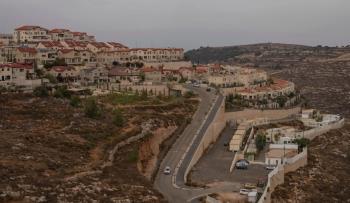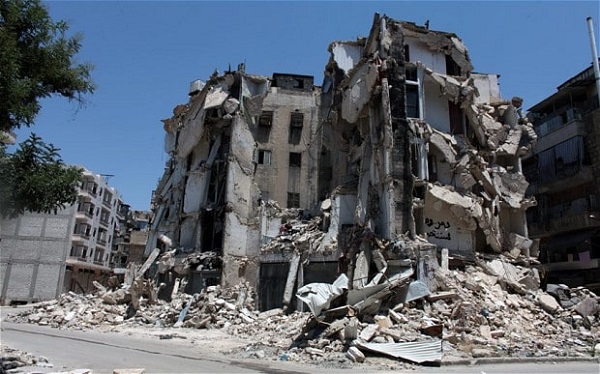Alwaght- The ISIS terrorist group was born in a time when after the eruption of the popular uprisings in the Arab countries the world expected to see emergence of post-revolution democracies in the West Asia region, largely built on the strength of new civil awareness rewarded to people by change waves. But instead it was the appearance of ISIS and Daeshism (from Daesh, Arabic acronym from ISIS) that astonished the world and sent it into horror.
Several factors contributed to rise of ISIS and other takfiri groups in the region, including crisis escalation, weaknesses of central governments of the crisis-hit countries like Syria and Iraq, conflict of regional interests of an array of regional and global powers, and most importantly the full-scale financial and spiritual support offered to the militants by some regional sides like Saudi Arabia.
However, in recent years the anti-terror powers like Russia and Iran, Tehran-led Axis of Resistance, and the popular forces in Iraq and Syria have pushed against the ISIS terrorists. As a result, the terrorist group began to lose ground to the advancing forces day by day. The anti-terror progresses signal an imminent cleansing of the region of the takfiri groups.
The analysts do not expect full demise of Daeshism and takfirism as novel and hazardous ideologies once ISIS is obliterated, still they think that new tense conditions will take place in the region, while several years of war in Syria and Iraq blocked way of any stability and peace in the whole region.
A question presents itself here: will end of ISIS mean end of regional crises? To answer this question, first there must be an exploration of regional conditions at the time of ISIS and after it.
Region under ISIS and other takfiri groups
The ISIS media activities including the promotion videos gave the world a picture of the group’s heinous crimes and spread terror not only across the region but the world. The challenge should have been dealt with by the central governments of Iraq and Syria, but they were weak, something emboldened the terrorist group to announce establishment of the so-called Islamic State or caliphate, giving the region’s people further fright.
The announcement ushered in regional powers' stepping in the crisis. Iran, for example, intervened to protect its borders against terror attacks and mainly at the behest of Syrian and Iraqi governments, but others such as Saudi Arabia stepped in as they found the opportunity ripe to push against Iran and the allied countries as part of Riyadh-Tehran regional rivalry.
The conflict of Iranian and Saudi interests along with Riyadh’s backing for the terrorists made the situation come to a standstill, longer life of ISIS, and ultimately intervention of powers like the US and Russia, and also the European bloc, in the crisis which meant more complicated anti-ISIS fight due to multifaceted crisis.
Despite its survival for a couple of years, the terrorist group has now set to disappear, though Daeshism is expected to live for a long time as an ideology across the world.
Post-ISIS time: will stability be restored?
The ISIS crimes are so huge and heinous that other regional crises look moderate by comparison. Ongoing Bahrain crisis, Yemen war that takes lives of innocent people on a daily basis, Qatar blockade and rise of new regional alliances, continued Israeli crimes in Palestine under cover of Arab-Israeli normalization process, and regular terrorist attacks in the region like the recent attack in Iran, and growing separatist agendas in Syria and Iraq, and many others all signal that critical regional conditions will continue. Reacting to the pressures against Qatar by a bloc of Arab states, President Recep Tayyip Erdogan of Turkey recently said that some sides are cultivating plans for new crisis in the region, adding that Ankara was well familiar with all of them.
The end of takfiri-made crisis in the region marks the restart of the rule of the governments in the war-ravaged countries. In this period, share-seeking of different parties and thus struggle of interests will stand behind development of new crises in West Asia.
There must be an exploration to make a clear picture and so understanding of the benefiting parties of the new regional crisis, to see which parties want the biggest share. Saudi Arabia’s policy is apparently the main factor keeping active the Yemen war, Bahrain crisis, Qatar blockade, and deep antipathy to Iran and Iran-led Axis of Resistance. Regional and international backers of Riyadh like the US and the Israeli regime are the main beneficiaries of such Saudi behaviors. Tel Aviv takes advantage as it can shift the anti-Israeli Arab and Muslim sentiments that are mainly caused by Israeli crimes against the Palestinians to anti-Iranian ones largely through launching Iranophobic propaganda campaign. The US, under its new President Donald Trump who puts a premium on the Israeli security, benefits by selling arms to the regional allies amid deepening divides and Arab countries' false fear of Iran’s power gain. In fact, any new conflict in the region works in best interest of the American economy.
With these issues in mind, the new West Asia crises in post-ISIS period will stem from intervention in sovereign states, violating their sovereignty, and military deployment to the region. The analysts agree that Trump during his Saudi Arabia visit gave the kingdom leaders the green light to act on their free will. War against the neighboring Yemen, intervention in Bahrain's domestic crisis, and seeking to influence Qatar policy are obvious examples of Saudi violation of these countries' sovereignty. Military deployment to Yemen and Bahrain, intervention in Syria and Iraq and encouraging separatist movements there, and issuing ultimatum to Qatar to change its policy all are recognized as violation of the international laws that call for respecting sovereignty of states.
With this clear picture of the region in mind, it can be predicted that as long as interventionist parties like the US, Saudi Arabia, and their proxies avoid stopping violating other countries' sovereignty, the region will not see stability and peace again. Only if the peace pretenders stop seeking interests at the cost of the regional stability, the region will enjoy real peace and ISIS termination will pave the way for end of takfiri and radical ideologies.



























